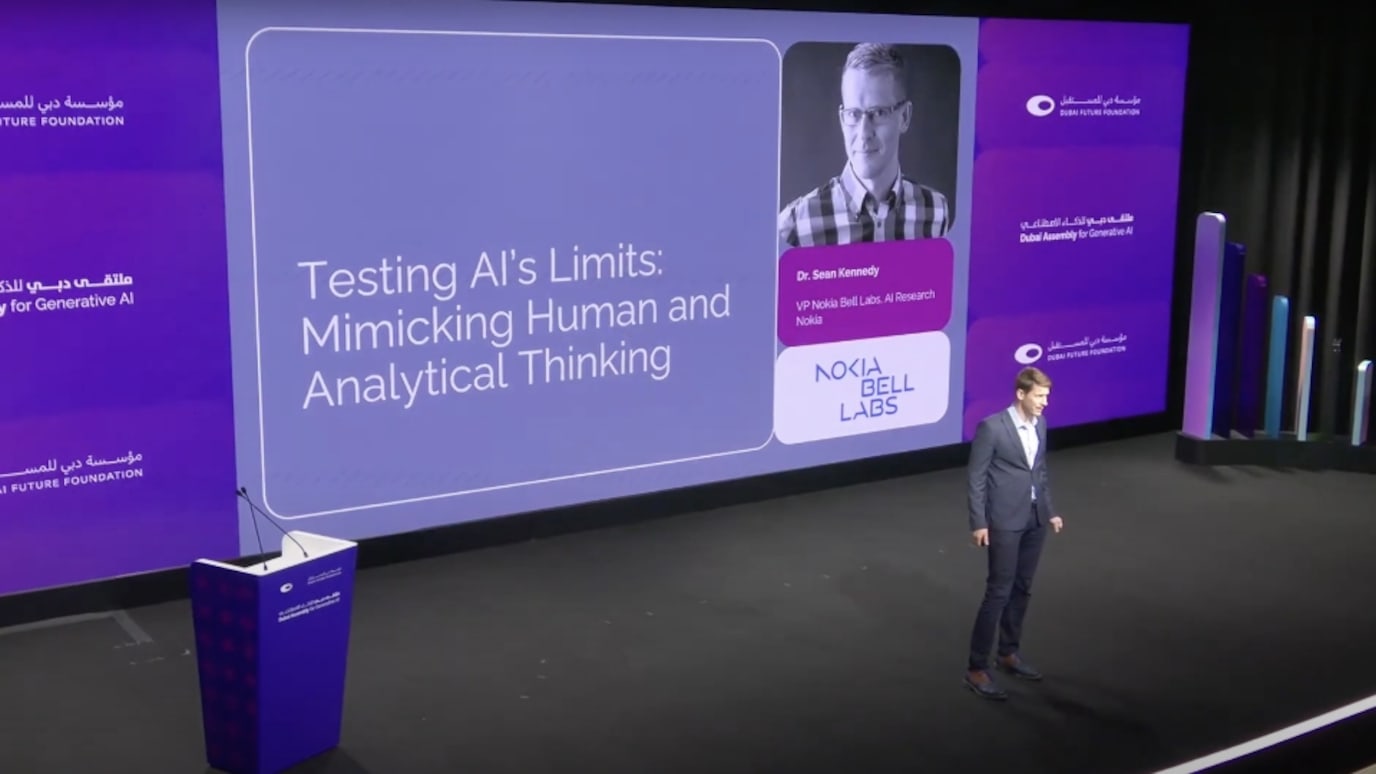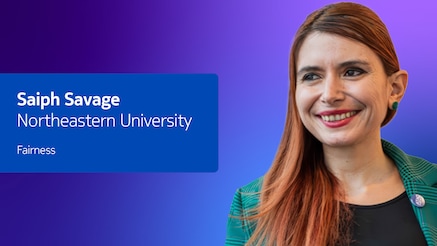What is Responsible AI?
Nokia has defined six principles, or pillars, that should guide all AI research and development in the future. We believe these principles should be applied the moment any new AI solution is conceived and then enforced throughout its development, implementation and operation stages.
Nokia Bell Labs and e& announce R&D collaboration to innovate for strategic industrial sectors
The goal is to develop responsible AI solutions for sustainable enterprise and industrial automation applications and accelerate innovation concepts toward real world deployments.

For AI to thrive, it must put humans first
Six pillars of Responsible AI
Fairness
AI systems must be designed in ways that maximize fairness, non-discrimination and accessibility. All AI designs should promote inclusivity by correcting both unwanted data biases and unwanted algorithmic biases.
Reliability, Safety and Security
Privacy
Transparency
Sustainability
Accountability
AI systems must be designed in ways that maximize fairness, non-discrimination and accessibility. All AI designs should promote inclusivity by correcting both unwanted data biases and unwanted algorithmic biases.
AI systems should cause no direct harm and always aim to minimize indirect harmful behavior. They should always perform as intended and remain resilient against threats and outside tampering.
AI systems must respect privacy by providing individuals with agency over their data and the decisions made with it. AI systems must also respect the integrity of the data they use.
AI systems must be explainable and understandable. They should allow for human agency and oversight by producing outputs that are comprehensible to the average person. AI decisions should be auditable and traceable, which will ultimately instill the trust AI needs for broad acceptance.
AI systems should attempt to be both societally sustainable, by empowering society and democracy, and environmentally sustainable, by reducing the amount of power required to train and run these systems.
AI systems should be developed and deployed through consultation and collaboration in order to create true accountability. The long-term effects of an AI application must be understandable by all stakeholders, and those stakeholders must be empowered to act if any proposed change produces adverse effects.










































